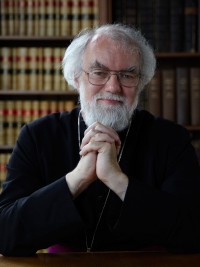Roles and priorities
The various roles and responsibilities of the Archbishop of Canterbury have developed over more than 1400 years of history. The one constant is his ministry as a senior bishop, though the nature and purpose of his authority differs in different contexts The central role, and the source of the archbishop's authority, is as Bishop of the Diocese of Canterbury (the local church of Canterbury), which covers most of the county of Kent. The worship, teaching, discipleship and mission of that diocese are his particular personal responsibility. All other roles are rooted in this one.
The central role, and the source of the archbishop's authority, is as Bishop of the Diocese of Canterbury (the local church of Canterbury), which covers most of the county of Kent. The worship, teaching, discipleship and mission of that diocese are his particular personal responsibility. All other roles are rooted in this one.
The Archbishop of Canterbury is the Primate of All England (the 'first bishop' of England), and shares several roles with the Archbishop of York. For well over a thousand years the distinction of the Diocese of Canterbury has given its bishop formal responsibility as a 'metropolitan' - the first among the bishops of a region. He has authority (also known as 'jurisdiction') at all times in the 30 dioceses of his Province - 29 in southern England, and 1 in Continental Europe. York has the same roles in relation to the 14 dioceses of his Province.
Based on his oversight in the Church of England, the Archbishop of Canterbury became the original sign of the unity of the bishops and local churches of the Anglican Communion, which has developed over the last 200 years or so. He is the focus and spokesman of its unity today, but shares his oversight as president of the Communion with other bodies.
In the last two areas of dialogue and activity - Ecumenical relationships between Christian Churches, and Inter Religious relationships between different traditional world religions - the Archbishop has no formal authority. But his role in England and the UK, and his leadership in the Communion at large, give him significant influence and the responsibility to speak authoritatively for the faith and witness of the Church, the Anglican Church in particular.